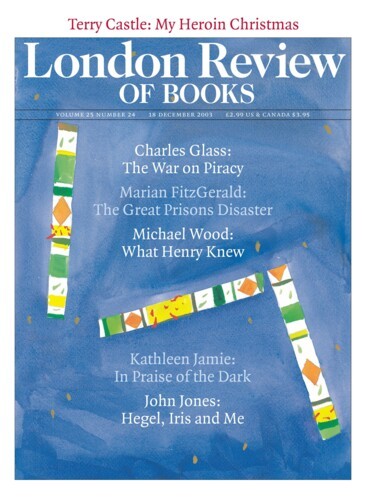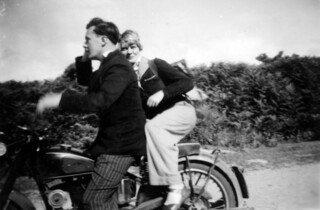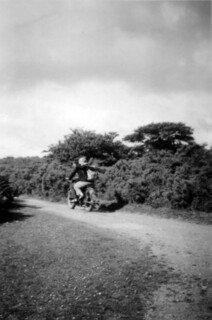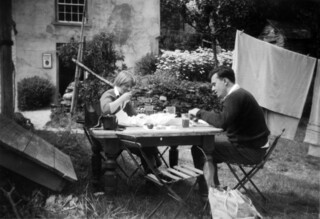I’ve beenbasking in a warm glow from A.N. Wilson’s recent book about Iris Murdoch* – I mean its way of holding Plato and Kant not quite on a level with each other but far above everyone else except Hegel, about whom more later, in its account of her attention to the classical masters. This is a big merit, and a needful one because others, including her official biographer, have been at fault here. While spending a lot of time with Plato and Christian Platonism, as of course they should, they have allowed Kant to languish in the dusty rear.
Wilson takes us back to Iris’s undergraduate tutorials with Donald MacKinnon. There was a lot of Kant on the table. What sort of Kant I wish I knew. These tutorials, or some of them, were shared with someone who has become a distinguished philosopher, and I would go straight to her at this moment were it not that we have quarrelled and I flinch at the prospect of another fruity missive from an old friend.
Why does any of this matter? Beginning to say, to try to say, I ask you to join Iris and me, crossing Devon on a motorbike not long after the war. Empty roads, no crash-helmets. We were going too fast and indulging our childish habit of throwing high-sounding philosophical phrases at each other. (I think this was a hint taken from John Buchan’s autobiography, where he links stretches of countryside with metaphysical systems.) Iris said into my ear: ‘The teleological suspension of the ethical.’ I shouted over my shoulder: ‘The transcendental unity of apperception.’ And then we came off.
I had misjudged the tight bend before Bedford Bridge on the Tavistock-Plymouth road. Iris picked herself up at once. I was slower and was fussing around with the bike. And by the time I was sorted out, she had moved onto the bridge itself with her arms on the upper parapet, sleeves pushed up in that way of hers. We spent quite a minute looking up the little Walkham river into Dartmoor. Then she said: ‘Let’s do a class on Metaphor.’
The idea was to run a seminar together, primarily for graduates but with younger folk welcome. We talked about this for the next few months, mostly in Oxford pubs, and with a show of efficiency we divided what we wanted to be considered into six lumps to fit six weeks of an eight-week university term. That would give us a week in hand, or even two, if we found ourselves overrunning our theme-a-week timetable. Then, with a further gesture towards the practicalities of the thing, we accepted that our enterprise ought to appear on the lecture lists of several faculties. Surely it must, with its philosophical, literary, philological presumptions. But which faculties? Young and happy and a touch self-important, we decided it didn’t much matter. People who were interested would tell each other, would get to hear of it and come along.
But now we hit a snag. Out of the blue and what will seem very late in the day, Iris said it would help her compose her own thoughts if she could look at anything I had written so far. I told her there was nothing to look at, and after a bit of hesitation I added that there never would be.
The snag now grew into a jagged rock which sank us. I had supposed our six topics were markers to focus attention, so that she and I could say what we thought, perhaps quite briefly, perhaps airing disagreement between us, and the others would then join in. She had envisaged our reading two set pieces as a basis for discussion. They needn’t be long pieces, but she must have an anchor in the written word. (Through the years that’s how it continued for her: even in the informal context of the Royal College of Art she wrote her lectures out more or less in full.)
There was no quarrel. There was simply a disinclination on both sides to budge. Iris’s position was as I indicate; mine was equally determined by some radical quirk of nature. I was in the throes of my first book, and that, together with a modest stint of journalism, was all the public writing I could bear to do. In any case, then as now, I felt nearer to Truth without a sheet of paper in front of me. So we gave it up.
As I recall, our first week was to have been an assault on the received literal/ metaphorical dichotomy. You can scarcely cross the road in life without recourse to so-called metaphors of space, vision, movement, colour, taste, texture. The green of Andrew Marvell’s green thought does indeed look carried across – the Greek etymology of metaphor. But there’s no carried feel to a profound thought, nor a pungent nor a cheap one, and food for thought is as much matter-of-fact sustenance as baked beans. I had imagined Iris terrier-like, worrying the concept of fact, and me discoursing about such oddities as the failure to find anybody before Hamlet talking about his mind’s eye, which would lead me to Descartes’s cogito and the arrival of inwardness, privacy, the solitary self.
Our idea was to give weeks two and three to Plato – Plato being inconceivable in the absence of metaphor, either locally or as the holometaphor of myth – and weeks five and six to Kant, who we sort of pretended could manage without metaphor: the starry heavens of his Sublime and the Categorical Imperative of his moral law are, in the rough and tumble of ordinary talk, literally those things. I guess Plato would have belonged primarily to Iris. She was already thinking about Eros, the Good, the cave myth in the Republic, in ways which hadn’t shown themselves beyond private conversation. My role I saw as Mr Don’t Overdo It, checking Iris’s transports and urging the class to look at the marvellous blend of abstraction and straight drama in ‘old’ Parmenides giving ‘young’ Socrates the runaround over the theory of Forms, and – for me, the most beautiful thing in all Plato – Socrates at the beginning of the Phaedo rubbing his legs, sore from the fetters he has been wearing, and pondering the pleasure of being out of pain, a thought for his deathday.
There are many Platos, of course. But when it came to Kant, Iris and I would admit only two: an Enlightenment Kant who was to be hers, and a proto-Romantic Kant for me. So once again she was likely to find herself carrying the heavy end of our load, as indeed was proper. Enlightenment Kant meant the high priest of reason, minimised emotions, a sidelined deity, in fact textbook Kant, obvious Kant, though Iris would never have sounded obvious. Mine was to be the one who acknowledged an absolutely crucial debt when he pointed to Rousseau’s natural man in relation to the optimism of his own moral posture. We are all virtuous, said Rousseau, so long as Society doesn’t get at us. We are all servants of rational morality, said Kant; we all hear and are capable of responding to the call of duty: this is a fact of our humanity, our ordinary dishevelled humanity, a necessary, not contingent thing about being human. And I also planned to romanticise Kant’s noumenal world to the very limit – the noumenon, the thing in itself unreachable by pure/theoretical reason, ‘beyond that last blue mountain barred with snow’.
That accounts for weeks one, two, three, five, six. Week four we assigned to Hegel as a bridge between Plato and Kant. We had some disagreement over this. My preference had been to treat the system as one all-inclusive myth, thus not taking it seriously in the way Hegel wanted. All – but all – is metaphor. Absolute Geist, determining as its other self the Being that it timelessly thinks and knows, is a totalising dream of reason. To which Iris replied, rather loftily: ‘The kids know no Hegel. They have been taught to sneer at him. You and I will be left talking to each other.’ Then ought we to abandon Hegel? Not without a struggle. And in the end we hit on a seemingly more accessible version of Hegel as bridge. He is metaphorical and unmetaphorical. How would that go?
Something like this: ‘When Philosophy paints its grey in grey some form of things has grown old, and it cannot by this grey monochrome be made young again but only known. The Owl of Minerva takes wing when nightfall comes.’ Not young again but only known. That was my Hegel. It wasn’t Iris’s. Hers was influenced – I would have said infected – by the Marxism of her extreme youth. Where Hegel, and I in the spirit of metaphor, pictured the Weltgeist’s fearful toil, the patience, the suffering of the negative, Iris contemplated the will of history. But she was prepared to go along with mine, with the unhappy consciousness and its bitterness of soul-diremption, with the spiritual daylight of the present, with the Bacchanalian revel of the actual which is at the same time an intense, unbroken calm. In any case she believed, and later wrote, that while Hegel was not the greatest of philosophers he perhaps told more truths than any other.
As to Hegel and metaphor, we would have been struggling with that fine line dividing the transfigured common sense which is his kingdom, and gibberish. And when we came to the unmetaphorical man we would have found it hard to know which way to turn. An embarrassment of riches. He knew so much – music was his one big field of ignorance – and much of that much he delivered straight. Sometimes straight and yet not straight. I’m not thinking of obvious examples, such as Attic Tragedy and the French Revolution, so much as the swarming factual detail, including odds and ends of simple perception. Anticipating Yeats, he remarks the strangeness of our excreting where we procreate – and then calls nature simple-hearted for presenting the dialectic of generation ‘in an irrational form’. Nature doesn’t know ‘what it is really saying’.
Nature is by no means alone there, though with Iris and me it was more a case of not knowing where we were really going. Hegel, as we talked in the shabby peace of pubs before the brewers wrecked them, was outgrowing his function as a bridge figure between Plato and Kant. This was largely if not entirely an affair of the moment – ‘moment’ in the Hegelian sense of ‘significant phase’. She had got hold of Heidegger’s 1930s lectures on the Phenomenology. Her German was very inadequate, as was mine (she had acquired a bit in her UNRRA time at the end of the war) but enough for her to get excited over something that was much more than a commentary. Also, Geoffrey Mure had just (1950) published A Study of Hegel’s Logic, which was precisely a commentary but an excellent one, a helping hand over the very uneven, thickety terrain of its subject – rampant metaphysics codenamed logic. Mure was almost totally isolated in postwar Oxford, academically and intellectually. He was not a man with an interest in Hegel, he was a strict Hegelian as one might speak of a strict Methodist, and, being members of the same small college with a fellowship of around twenty, he and I saw a lot of each other. I had fallen in love with the fringe Christianity of the Jugendschriften, and he tried, gently, and failed to cure me of that; I refused to be coaxed away from the picture-thinking of religion (the Creation, the Fall, the Incarnation and so on are pictures of truths regarding which absolute knowledge dispenses with pictures). But we found inexhaustible common ground in the Phenomenology, surely one of the wonders of the world.
So Hegel looked like commandeering that class on metaphor. But Plato and Kant are in no way diminished in this long retrospect of mine, which brings me back to A.N. Wilson and the balance he maintains over Iris’s life of mind (you see Hegel moving in again: ‘life of mind’ – my fault, not Wilson’s). In fact, Kant, my point of departure and focus of protest, is much easier to deal with than Plato. At that distant time Iris was writing her Sartre book, and behind Sartre stood Hume, Kant, Kierkegaard, Heidegger and what she was repeatedly to call the morality of choice. Plato she characterised as the moralist of vision.
Choice has everything going for it. To the ordinary and not just the ordinary perception, making the right, the virtuous choice coupled with acting on it is morality, whereas vision seems hopelessly entangled with quasi-aesthetic reverie and self-indulgence. One enjoys daydreaming. Iris was very aware of the difficulties but thought disentanglement was possible. She thought a lot about Kant, who called the beautiful an analogue of the good. She liked that idea and used it, but couldn’t allow that we should neglect our worldly duty in order to gaze on beautiful things, however fruitfully.
Fruitful gazing is the nub. It led Iris beyond the beautiful to thoughts of realities other than oneself, of other lives with other centres than one’s own. She spoke and wrote eloquently about selfishness – about the greedy rapacious Ego and its demands on the moral imagination. Looking – really looking – is the Ego’s enemy, whether it be looking at the bird outside one’s window or at that careworn face in the bus queue. We all know what she meant. But she also meant something removed from what we all know, which was the morality of vision’s metaphysical heart: the attempt, perhaps inevitably unsuccessful but never to be abandoned, to look Perfection in the face. She ceased to believe in God but not in the idea of God. If the idea of God is a god – to recognise our friends is a god, said Euripides – we may call it the Good, Plato’s Form above all Forms. To see the Good is to love it, and to love it is to be ruled by it, and to be ruled by it is to be within it since it enfolds all partial goods, including oneself. (In the real world nobody is entirely evil.)
Now all this started with seeing the Good, which is difficult beyond all empirical difficulties – hence Plato’s image of the sun, giver of light and life, and yet how could gazing into it be done and what would it mean to do that? The morality of choice and the will is not obliterated by that of vision and constitutive good. They muddle along together. Plato and Kant. And so they do in Iris’s fiction, the muddle sometimes so tenderly imagined. Consider the failed priest in The Red and the Green – I forget his name – on his knees alone in some damp chapel, trying to pray. Look at him.
Send Letters To:
The Editor
London Review of Books,
28 Little Russell Street
London, WC1A 2HN
letters@lrb.co.uk
Please include name, address, and a telephone number.




